Introduction: Four Common SEO Myths Debunked
Have you ever felt overwhelmed by the world of SEO? You’re not alone! With shifting algorithms and endless advice from self-proclaimed experts, it’s easy to get lost in a maze of misinformation. One minute you’re told that keyword stuffing is the key to ranking higher, and the next, you hear it’s a surefire way to get penalized. What gives? In this article, we’re diving into four of the most common SEO myths that have been circulating for far too long. By separating fact from fiction, we aim to arm you with the knowledge you need to navigate the digital landscape confidently. So, grab a cup of coffee, sit back, and let’s debunk these myths once and for all! Your website’s SEO success could depend on it.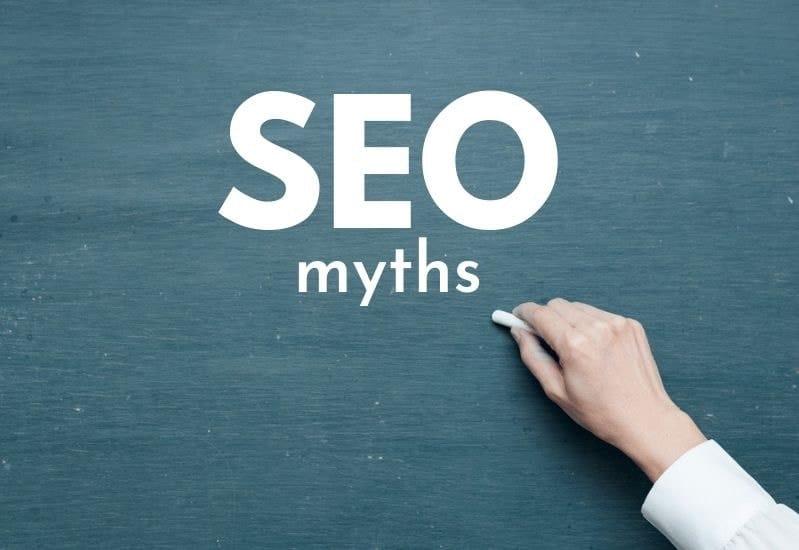
Understanding the SEO Landscape: Why Myths Persist
The world of SEO is frequently enough shrouded in mystery, with a plethora of myths persisting despite the availability of factual information.These misconceptions can lead to misguided strategies that ultimately compromise the effectiveness of optimization efforts. Understanding the reasons behind these myths is essential for anyone looking to navigate the complex SEO landscape.
One of the primary reasons myths endure is the rapid evolution of search engine algorithms. As platforms like Google frequently update thier systems, the guidelines for effective SEO can shift dramatically. This constant change leads manny to rely on outdated information, perpetuating inaccurate beliefs. For example, the notion that keyword stuffing guarantees higher rankings is a remnant of early SEO practices that no longer hold true.
Another factor contributing to the persistence of these myths is the overwhelming amount of information available online.With countless blogs, forums, and social media posts discussing SEO, it can be challenging to discern trustworthy sources from those that propagate false information. Many people either lack the expertise to evaluate the credibility of these sources or choose to follow popular trends without critical analysis.
Moreover, the complexity of SEO can make it tempting to seek quick fixes rather than invest in long-term strategies.Myths frequently enough thrive in environments where individuals are looking for shortcuts,such as the belief that paying for links will yield immediate results. In reality, lasting SEO success requires a thorough approach, which includes:
- Quality content creation that addresses user intent
- Building genuine backlinks through relationship building and outreach
- Regularly updating website elements to align with SEO best practices
To further illustrate the difference between myth and reality, consider the following comparison:
| Myth | reality |
|---|---|
| SEO is a one-time task. | SEO requires ongoing effort and adaptation. |
| Social media impacts SEO rankings. | Social media can drive traffic, but doesn’t directly affect rankings. |
| More keywords mean better rankings. | Quality over quantity: relevance matters more than keyword frequency. |
recognizing the persistence of myths in the SEO landscape is crucial for anyone involved in digital marketing.By staying informed about industry changes and focusing on foundational strategies, businesses can avoid the pitfalls of misinformation and build a robust online presence.
The Keyword Density Fallacy: Quality Over Quantity
For years, many digital marketers have clung to the belief that keyword density is a critical factor in SEO success. The idea was simple: the more frequently you incorporate specific keywords into your content, the better your chances of ranking high on search engine results pages. However, this approach has been debunked, revealing a more nuanced understanding of what truly drives online visibility.
Instead of focusing on the sheer number of times a keyword appears, it’s essential to prioritize quality content that engages and informs your audience. Search engines have made significant advancements in understanding context, semantics, and user intent. this means that stuffing keywords into your content can not only be ineffective but may also harm your search rankings due to penalties for over-optimization.
Here are some key reasons why shifting your focus from keyword density to content quality is beneficial:
- User Experience: High-quality content enhances the user experience, encouraging visitors to stay longer, share your pages, and return for more. This engagement signals to search engines that your content is valuable.
- Natural Language Processing: With advancements in AI and natural language processing, search engines are now better at understanding the context and relevance of your content. This allows for a more conversational tone, reducing the need for repetitive keywords.
- Rich Snippets and Featured Results: Quality content is more likely to earn rich snippets or featured spots in search results, which can significantly boost visibility and click-through rates.
To illustrate the shift from keyword density to content quality,consider the following comparison of two content strategies:
| Strategy | Focus | outcome |
|---|---|---|
| Keyword Stuffing | High keyword density,minimal context | Poor user engagement,risk of penalties |
| Quality Content | relevant,engaging,and informative | Increased traffic,better rankings,higher conversions |
By embracing a strategic approach centered around valuable,relevant content,you not only improve your chances of high rankings but also foster a loyal audience. Remember, it’s about creating a conversation with your readers, providing them with information that resonates and satisfies their needs.
Ultimately, the fallacy of keyword density emphasizes the broader truth in SEO: quality trumps quantity. so, let your content shine by focusing on what truly matters—delivering value and building connections with your audience.
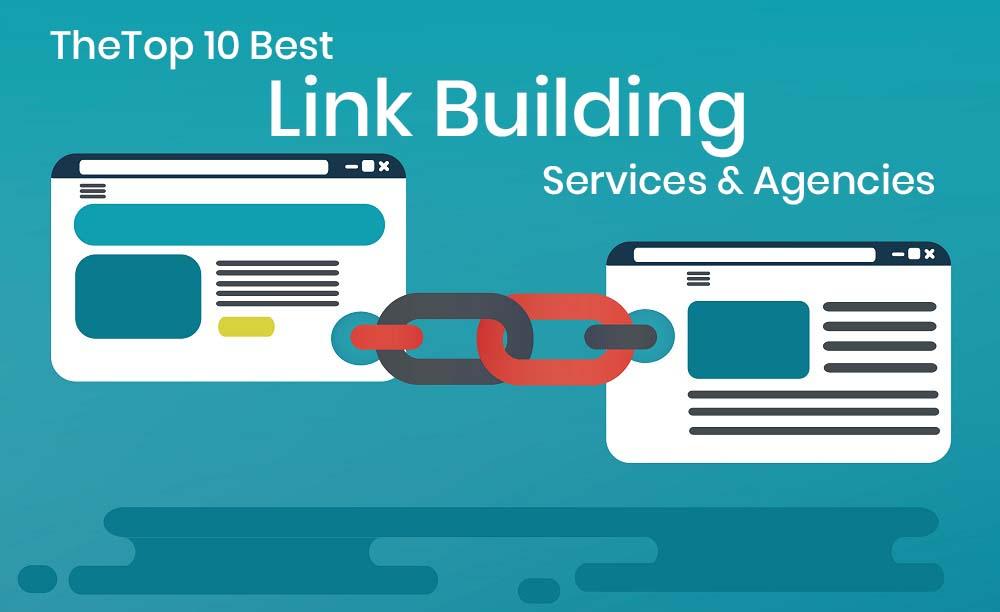
Link Building is Dead: The Truth About Backlinks
Ther’s a notion circulating in the SEO world that link building is a thing of the past, a relic of a bygone era where backlinks ruled the ranking game. Though, the reality is much more nuanced. While the tactics of acquiring backlinks may have evolved, the value of these links remains integral to a triumphant SEO strategy.
Many believe that simply creating great content will suffice to attract links, but the truth is, without a proactive approach, that content might remain invisible. Backlinks are still a major factor in how search engines determine the authority and relevance of your site. Consider the following points:
- Quality Over Quantity: It’s not just about the number of links but the quality. High-authority backlinks from reputable sources can significantly boost your site’s visibility.
- Diverse Link Profile: A varied link profile, incorporating links from different types of websites, can enhance your credibility and rankings.
- Context Matters: Links from websites in the same niche as yours carry more weight, as they provide context and relevance.
Moreover, search engines have become smarter. They can distinguish between genuine backlinks and those acquired through dubious means. Engaging in link schemes can lead to penalties, impacting your site’s performance. Instead, focusing on building relationships within your industry can yield organic and sustainable backlinks.
Here’s a quick overview of how backlinks impact SEO:
| Factor | impact on SEO |
|---|---|
| Domain Authority | Higher authority links improve your site’s credibility. |
| Referral Traffic | Links can drive direct visitors to your site. |
| Search Rankings | Quality links correlate with better search engine rankings. |
dismissing link building entirely is a misconception that could hinder your website’s growth. Instead, by embracing ethical link-building practices and focusing on creating meaningful connections, you can harness the enduring power of backlinks to enhance your SEO efforts. So, keep nurturing those relationships and watch your online presence flourish.
Content Length Doesn’t Equal Quality: Crafting Engaging Content
When it comes to creating content,many people fall into the trap of believing that longer articles are automatically better. Though, it’s crucial to understand that content length doesn’t equate to quality. Engaging content has nothing to do with the number of words; rather, it relies heavily on providing value to readers. A concise, well-crafted article can often resonate more deeply with your audience than a lengthy piece filled with fluff.
to craft content that captivates, focus on the following:
- Understanding Your Audience: know who you’re writing for and tailor your content to their interests and needs.
- Creating Compelling Headlines: an attention-grabbing headline can make all the difference in drawing readers in.
- providing Clear and Concise Information: Get straight to the point and avoid unneeded jargon to keep your audience engaged.
- utilizing Visuals: Incorporate images, infographics, or videos to break up text and enhance understanding.
Moreover, the structure of your content plays a pivotal role. Use short paragraphs, bullet points, and subheadings to make your content scannable. This way, readers can easily digest the information without feeling overwhelmed.A well-organized piece invites readers to engage and encourages them to consume the entire article.
Consider this simple table highlighting different content types and their effectiveness:
| Content Type | Engagement Level | Length |
|---|---|---|
| Blog Posts | Moderate | 600-1,200 words |
| Infographics | High | N/A |
| Videos | Very High | 2-10 minutes |
| E-books | Moderate | 5,000+ words |
while it’s easy to get caught up in the idea of word count, the key to effective content creation lies in delivering meaningful, engaging, and well-structured information. Prioritizing quality over quantity will not only enhance user experience but also improve your site’s SEO performance in the long run. So, the next time you sit down to write, remember that punching up your content with insight and clarity is far more vital than simply hitting a target word count.
Social Media Signals and SEO: What Really Matters
When it comes to the interplay between social media signals and search engine optimization (SEO), misconceptions abound. Many believe that a strong social media presence directly boosts SEO efforts, but the reality is more nuanced. Search engines like Google do not directly use social media metrics as a ranking factor. Though, the relationship between social media and SEO is worth exploring, as these platforms can significantly impact your online visibility.
One of the most crucial aspects to understand is that social media can drive traffic to your website. While likes, shares, and follows may not contribute to ranking algorithms, the increased visibility can lead to more inbound links, which are a vital component of SEO. When your content gets shared widely, it’s more likely to attract attention from influencers or website owners who may link back to your site, creating a ripple effect that ultimately enhances your SEO profile.
Engagement on social media should not be underestimated. It helps build brand authority and trust, both of which are significant in the eyes of search engines. When users engage with your content—commenting, sharing, or liking—they signal to search engines that your content is valuable. This organic engagement can lead to improved brand searches and direct traffic, which are considered positive signals for SEO.
Consider these points when evaluating the relationship between social media and SEO:
- Content Quality: Quality content is more likely to be shared on social media, leading to increased traffic and potential backlinks.
- Brand Awareness: Strong social media presence enhances brand awareness,prompting more searches directly related to your brand.
- User Engagement: High engagement levels on social platforms can lead to more inquiries and interactions with your brand.
Furthermore, social media platforms themselves can be optimized for search.By integrating keywords into your profiles and posts, you can improve your visibility within those networks and even in search results. Each social media platform has its own set of best practices, but establishing a consistent and keyword-rich presence is crucial.
| Factor | Impact on SEO |
|---|---|
| Social Shares | Indirect influence via traffic and backlinks |
| User Engagement | Builds brand authority, improving perceived value |
| Content Quality | Increases shares and backlinks, boosting SEO efforts |
while social media signals may not directly boost SEO rankings, their influence cannot be dismissed. Focus on creating sharable content and engaging with your audience across platforms.The resulting traffic and brand authority will naturally benefit your SEO strategy in the long run.
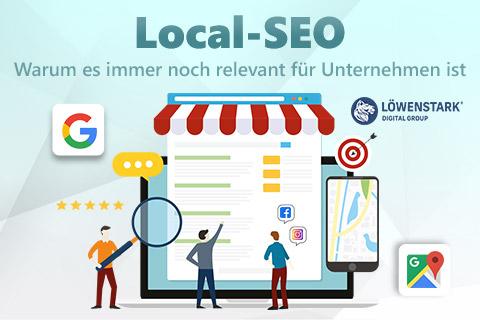
Local SEO is Only for Local Businesses: expanding Your Reach
Many people mistakenly believe that local SEO is exclusively for small businesses aiming to attract nearby customers. However, this is far from the truth.In reality,local SEO can serve a much broader range of businesses,including those operating on a national or even global scale.When executed correctly, local SEO strategies can enhance your online visibility and bring in valuable traffic, regardless of your business size or scope.
Consider the following points to understand how local SEO can expand your reach:
- Targeting Local Audiences: Even if your business operates in multiple locations, focusing on local SEO allows you to create tailored content that resonates with specific regions. This can help establish a loyal customer base in different areas.
- Building Authority: by optimizing for local keywords, you can position yourself as an authority in your industry within specific locales. This not only enhances credibility but also drives more traffic to your site.
- Utilizing Local Listings: Platforms like Google my Business allow businesses of all sizes to appear in local searches. This means even a larger corporation can benefit from appearing in local listings when users search for relevant services.
Moreover, local SEO can significantly improve your brand’s visibility in search results. by optimizing your website and online presence for local search terms, you can attract more organic traffic. This is particularly effective for businesses that offer services or products with local relevance. For instance, a national coffee chain can still leverage local SEO to promote its specific outlets in various cities, thereby enhancing foot traffic in those areas.
To further illustrate this,let’s look at a simple comparison of customary SEO versus local SEO:
| Traditional SEO | Local SEO |
|---|---|
| Focuses on broad keywords | targets location-based keywords |
| Serves a national or global audience | Serves specific geographic areas |
| Relies on general search engine visibility | utilizes local pack and maps for visibility |
local SEO isn’t just for neighborhood shops; it’s a robust tool for any business looking to broaden its reach. By integrating local strategies into your overall SEO plan, you can tap into new markets, foster community relationships, and ultimately drive more engagement and sales. Don’t overlook the potential that local SEO holds for your business, no matter how expansive it may already be.
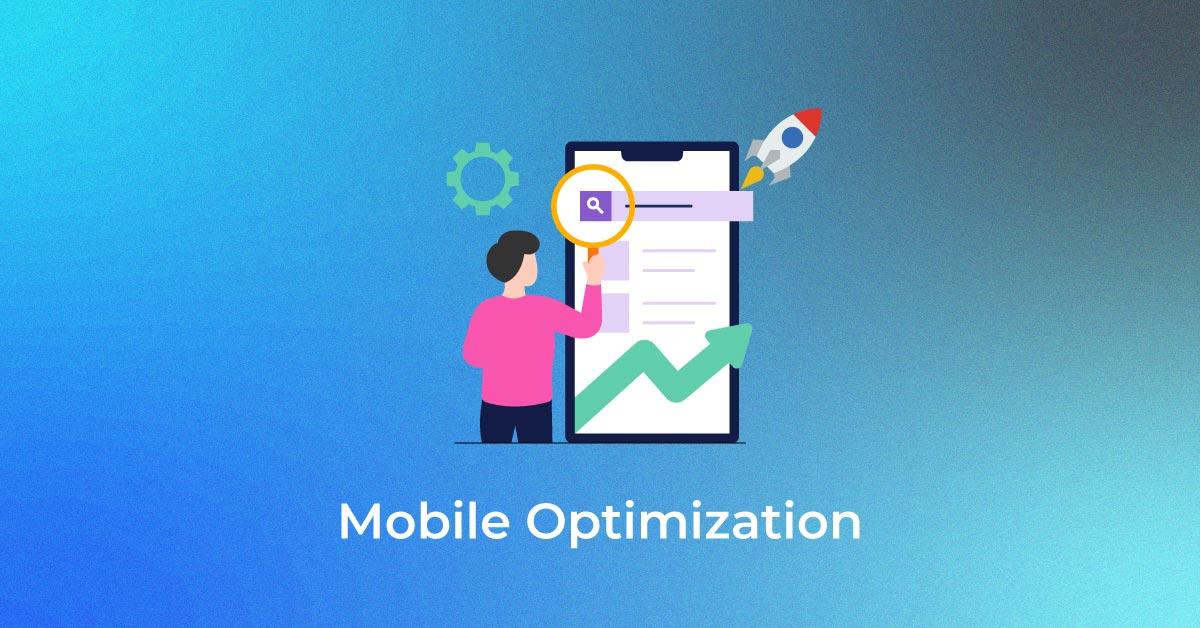
Mobile Optimization is Optional: Embracing a Mobile-First World
In today’s digital landscape, the debate around whether mobile optimization is optional has become increasingly irrelevant. The reality is that we are living in a mobile-first world, where users rely heavily on their smartphones and tablets for browsing, shopping, and accessing information. Ignoring mobile optimization is like opening a brick-and-mortar store and refusing to display a sign. It’s simply not an option if you wont to thrive.
Consider the following:
- Over 50% of all web traffic now comes from mobile devices.
- Search engines prioritize mobile-amiable websites in their rankings.
- A poor mobile experience can lead to high bounce rates and lost conversions.
With this in mind, it’s crucial to understand that mobile optimization is not just about making your site look good on smaller screens; it’s about providing a seamless user experience.This includes fast loading times, easy navigation, and content that is easily readable without zooming in. A site that is not optimized for mobile users runs the risk of alienating a significant portion of its audience.
Moreover, Google’s mobile-first indexing means that the mobile version of your website is considered the primary version. If your site is not mobile-friendly,you may find yourself slipping down the search engine rankings,affecting your visibility to potential customers. Here’s a simple comparison:
| Mobile Friendly | Not mobile Friendly |
|---|---|
| Fast loading times | Slow and clunky |
| Intuitive navigation | confusing layouts |
| Responsive design | Fixed layouts |
Incorporating a mobile-first strategy is not just about being trendy; it’s about survival. Customers expect a smooth experience whether they’re on their phone during a commute or using a tablet in their living room. By prioritizing mobile optimization, businesses can enhance user satisfaction, improve engagement, and ultimately drive more conversions.
In a world where everyone is on the go, embracing mobile-first design isn’t optional—it’s essential. It’s time to adapt or risk being left behind in the digital dust. With the right focus on mobile optimization, you can ensure that your business not only meets current expectations but also sets a standard for excellence in user experience.

SEO is a One-Time Task: The Importance of Ongoing Efforts
One of the most pervasive misconceptions in the realm of digital marketing is the belief that SEO is a one-off task. Many businesses invest time and resources into optimizing their websites, only to breathe a sigh of relief once the initial work is completed. However, reality paints a different picture. SEO is not a set-and-forget strategy; it demands ongoing attention and effort to remain effective and relevant.
Search engines like Google continuously update their algorithms to enhance user experience and deliver the most pertinent search results. What worked yesterday may not yield the same results today. To stay ahead in the digital landscape, it’s crucial to:
- Monitor Performance: Regularly check your website analytics to track which pages perform well and which don’t. This will help identify areas that need betterment.
- Update Content: Fresh, relevant content is favored by search engines. Updating old blog posts and adding new articles can keep your site dynamic and engaging.
- Check Competitors: The competitive landscape is always shifting. Keeping an eye on your competitors can provide insights into trends and strategies that may benefit your own SEO efforts.
Moreover, user behavior is constantly evolving. Search queries change based on trends, seasons, and current events. By continuously optimizing your site to address these shifts, you enhance your chances of maintaining high visibility in search results. It’s not just about keywords; it’s about understanding your audience and their changing needs.
Additionally, the rise of voice search and mobile usage has transformed the way people find information online. This means your SEO strategies must adapt to cater to different formats and search patterns. as a notable example, you may need to focus on long-tail keywords or structured data to improve your chances of appearing in voice search results.
Investing in ongoing SEO efforts can yield significant returns in the long run. Consider the following table that summarizes the benefits of continuous SEO maintenance:
| Benefits of Ongoing SEO Efforts | Key Outcomes |
|---|---|
| Improved Rankings | Higher visibility in search engine results pages (SERPs) |
| Increased Traffic | More visitors to your website |
| Enhanced User Experience | Lower bounce rates and higher engagement |
| Better Conversion Rates | More leads and sales |
treating SEO as a one-time task is a myth that can hinder your online success. Embracing the need for ongoing SEO efforts not only keeps your website competitive but also aligns it with the ever-evolving digital ecosystem. Invest the time and resources necessary to keep your SEO strategy fresh,and you will likely see the benefits multiply over time.

The Role of Meta Tags: More than Just Keywords
When it comes to optimizing your website for search engines, many people think of meta tags as just a relic of the past, primarily focused on keywords. However, their role extends far beyond simply stuffing them with keywords to rank higher. In fact, meta tags serve multiple purposes that can enhance your website’s visibility and user experience.
1. Descriptive content: One of the main functions of meta tags, particularly the tag, is to provide a concise summary of your page’s content. This description not only appears in search engine results but also influences click-through rates. A well-crafted meta description can entice users to click on your link over others. Aim for a compelling description that accurately reflects the content of your page while encouraging engagement.
2. social Media Sharing: meta tags are instrumental when it comes to social media. Tags such as Open Graph and Twitter Card help define how your content looks when shared on platforms like Facebook and Twitter. By specifying titles, images, and descriptions, you can control the narrative of your shared content, making it more appealing to users scrolling through their feeds.
3. Indexing and Crawling: Meta tags also play a crucial role in how search engine crawlers index your site. Using tags like , you can guide search engines on how to handle your pages. For example, you can instruct them to index the page, follow its links, or even exclude certain pages from indexing altogether. This level of control can be pivotal in managing your site’s SEO strategy.
| Meta Tag | Purpose |
|---|---|
|
Summarizes page content for search results. |
|
Guides search engines on indexing behavior. |
|
Defines title for social media sharing. |
|
Ensures responsive design on mobile devices. |
4. Enhancing User Experience: meta tags contribute significantly to user experience. Tags like ensure your site is mobile-friendly, which is critical for user retention and satisfaction. A seamless experience across devices not only keeps users engaged but also signals to search engines that your site is valuable,potentially boosting your rankings.
<pUnderstanding the multifaceted role of meta tags is essential for anyone serious about SEO. They are not merely placeholders for keywords; rather, they are powerful tools that, when used correctly, can enhance your site's visibility, engagement, and overall performance.So,don’t overlook them in your SEO strategy—harness their potential and see the difference it can make for your website!

SEO Results are Instant: Patience is Key in Digital Marketing
One of the most prevalent misconceptions surrounding SEO is the belief that results come instantly. many businesses dive into digital marketing with the expectation of seeing immediate returns on their investment. however,patience is a crucial component in the SEO game. Unlike paid advertising,where the effects can be seen almost instantly,organic search results require time to build momentum and visibility.
Search engines use complex algorithms to determine rankings, taking into account various factors such as content quality, backlinks, and user experience. Once changes are made to your website or new content is published, it can take weeks or even months for search engines to crawl, index, and rank these updates. This is why it’s essential to adopt a long-term mindset when implementing SEO strategies.
To help illustrate why patience is key, consider the following factors that influence SEO timelines:
- Content Creation: High-quality, relevant content is the backbone of SEO. Crafting this content takes time and effort.
- link Building: Establishing authoritative backlinks is a gradual process that requires relationship-building and consistent outreach.
- Algorithm Updates: Search engines regularly update their algorithms, which can affect rankings unpredictably.Staying updated and adapting is a continuous effort.
Given these dynamics, businesses must set realistic expectations and focus on consistent improvement rather than quick fixes. A strategic approach involves:
- Regularly updating content: Adding fresh content keeps your site relevant and appealing to search engines.
- Monitoring analytics: Use tools to track your site’s performance and understand what works and what doesn’t.
- Engaging with your audience: Building a community around your brand can lead to organic shares and backlinks, enhancing your SEO over time.
while the allure of instant results is tempting, embracing the journey of gradual growth will yield far better outcomes in the world of SEO. By cultivating patience and consistency, your digital marketing efforts can lead to sustainable success in the long run.
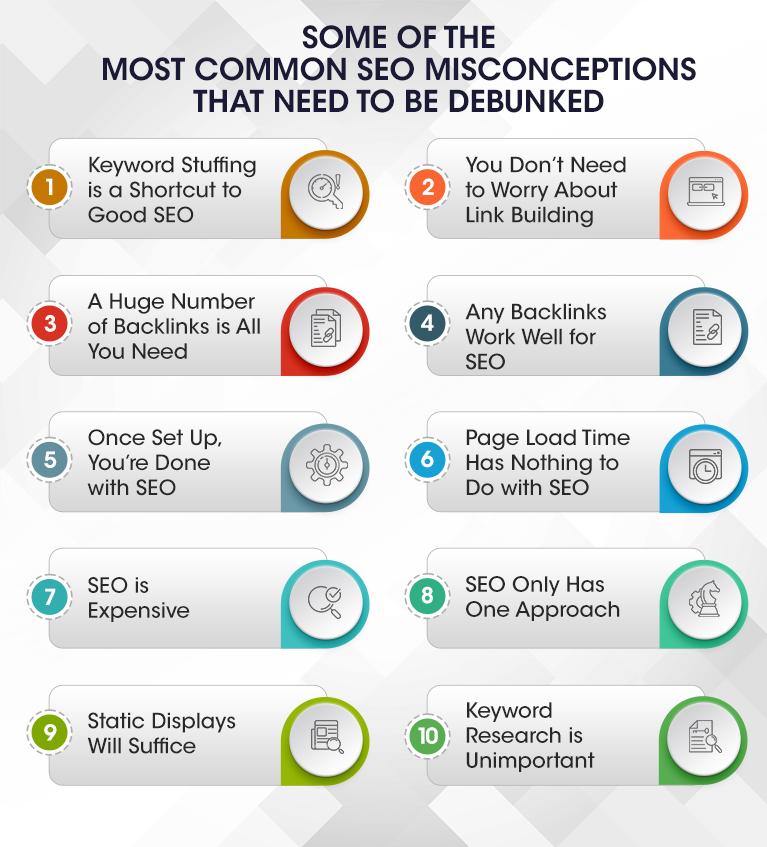
The Myth of SEO for Beginners: Everyone Can learn
One of the most pervasive myths surrounding SEO is the belief that it’s only for a select few who have a background in marketing or technology. The truth is, anyone can learn SEO, regardless of their previous experience. With the right resources and a little dedication, you can master the basics and make a significant impact on your website’s visibility.
Many newcomers feel intimidated by technical jargon and complex algorithms, but SEO is fundamentally about understanding your audience and providing them with valuable content.Here are a few reasons why you shouldn’t let fear hold you back:
- Accessible Learning Resources: There are countless free and paid resources available online—from blogs and podcasts to video tutorials and webinars—that break down SEO concepts into manageable pieces.
- Community Support: The SEO community is incredibly supportive. Forums, online courses, and social media groups can help connect you with others who are learning, offering you the chance to ask questions and share experiences.
- Trial and Error: SEO is not a one-size-fits-all approach. Experimentation is key. You can learn a lot by trying different strategies and observing what works for your specific audience.
Another common misconception is that SEO is a one-time effort. In reality, it’s an ongoing process that requires regular updates and adjustments. The digital landscape changes constantly, and staying informed will help you adapt your strategies to ensure continued success.
To illustrate the potential for anyone to engage with SEO, consider the following table that highlights the skills you can develop as you learn:
| Skill | Description |
|---|---|
| Keyword Research | Identifying the terms your audience uses to search for information. |
| Content Creation | Writing engaging, valuable content that resonates with readers. |
| Analytics | Understanding metrics to measure your site’s performance and adjust strategies. |
| Link Building | Establishing relationships that enhance your site’s authority through backlinks. |
So,if you’re still hesitating to dive into the world of SEO because you believe it’s too elaborate,remember that learning is a journey. Every expert was once a beginner. Embrace the challenge, leverage available resources, and before you know it, you’ll be navigating the SEO landscape with confidence!

Embracing SEO Myths: The Path to Better Understanding and Strategy
When it comes to search engine optimization, misconceptions abound.understanding these myths is crucial for crafting an effective SEO strategy that truly drives results. Let’s take a closer look at some of the most prevalent SEO myths and the realities that debunk them.
Myth 1: More Keywords Equals Better Rankings
Many believe that stuffing a page with keywords ensures higher rankings.However, search engines have evolved significantly. Today, they prioritize content quality and relevance over keyword density. Instead of focusing on a specific number of keywords,consider creating comprehensive and valuable content that naturally incorporates relevant terms. This approach not only enhances readability but also improves user engagement, which search engines reward.
Myth 2: backlinks Are the Only Way to Rank
While backlinks are undeniably critically importent, they are not the sole determinant of your site’s ranking. Many assume that the more backlinks they have, the better their ranking will be; though, quality trumps quantity. Consider this:
| Backlink Quality | Impact on SEO |
|---|---|
| High-quality backlinks from reputable sites | Significantly boost rankings |
| Low-quality or spammy backlinks | Can hurt rankings |
Establishing genuine relationships and obtaining links from authoritative sources within your industry is much more beneficial than pursuing sheer numbers.
Myth 3: Social Media Doesn’t Affect SEO
Another common misconception is that social media activity has no bearing on SEO. In reality, while social media signals are not direct ranking factors, they play a supportive role in boosting visibility. When content is shared on social platforms, it has the potential to reach a broader audience, resulting in increased traffic and the likelihood of gaining backlinks. Engaging with your audience on social media can enhance your brand’s authority and influence, which indirectly affects your search rankings.
Myth 4: SEO Is a One-Time Fix
many businesses view SEO as a set-and-forget strategy. This couldn’t be further from the truth. SEO requires ongoing effort and adaptation to stay ahead of the competition and algorithm changes. Regularly updating content, conducting keyword research, and analyzing performance metrics are vital components of a successful SEO strategy.Think of SEO as a marathon, not a sprint; it demands continuous investment and a long-term viewpoint.
By debunking these common myths, businesses can better understand the true nature of SEO and adopt more effective strategies, ultimately leading to improved online visibility and success.
Frequently Asked Questions (FAQ)
Q: What are some common myths about SEO that people believe?
A: Oh,there are quite a few! One of the most common myths is that SEO is a one-time task. Many people think that once their website is optimized, they can just sit back and relax.In reality, SEO is an ongoing process that requires regular updates and adjustments to stay competitive.
Q: Why do people think SEO is a one-and-done deal?
A: Great question! I think it comes from the misconception that simply implementing a few keywords or optimizing a few pages is all it takes. But search engines are constantly evolving,and so are user behaviors. Maintaining and improving your SEO is crucial to staying relevant.
Q: Another myth I hear is that more keywords equal better ranking. Is that true?
A: Absolutely not! While keywords are important, stuffing your content with them can actually harm your ranking. Search engines prioritize high-quality, relevant content that provides value to users. It’s more about context and relevance than sheer volume.
Q: what about the belief that backlinks are no longer important? Is that true?
A: Not at all! backlinks are still a huge factor in SEO. They act as votes of confidence from other websites, signaling to search engines that your content is credible and worth ranking higher. So, building a strong backlink profile remains a vital part of a successful SEO strategy.
Q: I’ve heard that social media doesn’t affect SEO. Is that accurate?
A: That’s a popular myth too! While social media doesn’t directly impact rankings,it can certainly influence your SEO efforts. Sharing your content on social platforms can increase visibility and drive traffic to your site, which can lead to more backlinks and engagement—ultimately benefiting your SEO.
Q: So, what’s the takeaway for someone trying to improve their SEO?
A: The key is to stay informed and adaptable. Don’t fall into the trap of outdated beliefs. SEO is about creating quality content, building relationships, and consistently evolving your strategy. Keep learning, testing, and optimizing, and you’ll see results!
Key Takeaways
As we wrap up our exploration of the four common SEO myths, it’s clear that the world of search engine optimization is full of misconceptions that can lead us astray. The good news is that by debunking these myths, we empower ourselves to make smarter, more informed decisions about our online strategies.
Remember, SEO isn’t just about tricking the algorithm; it’s about understanding your audience and creating valuable content that resonates. By focusing on quality,relevance,and user experience,you can achieve sustainable growth and visibility in the crowded digital landscape.
So, the next time you hear someone mention these myths, you’ll be armed with the truth. let’s move forward with confidence and clarity, and together, let’s navigate the ever-evolving world of SEO with a fresh perspective. If you have any thoughts or questions about SEO practices,feel free to share them in the comments below. Until next time, happy optimizing!


